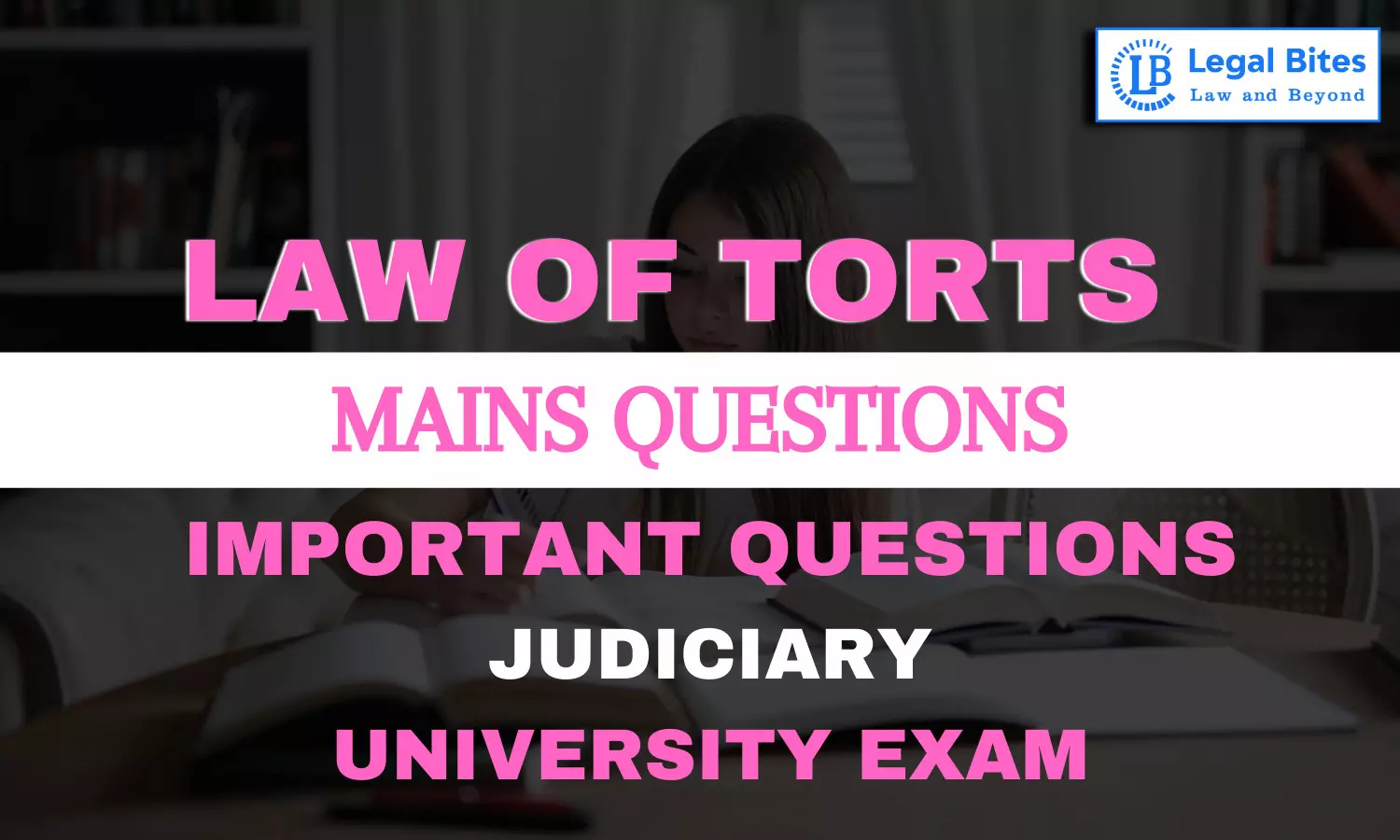Explain the following: Ubi jus ibi remedium.
Find the question and answer of Law of Torts only on Legal Bites.

Question: Explain the following: Ubi jus ibi remedium. [RJS 1971, 1976, BJS 2000, UPJS 2018]Find the question and answer of Law of Torts only on Legal Bites. [Explain the following: Ubi jus ibi remedium.]AnswerThe maxim "Ubi jus ibi remedium" means "where there is a right, there is a remedy." It is a fundamental principle of law that provides that for every legal right that a person or entity possesses, there must be a corresponding remedy available to enforce that right. In other...
Question: Explain the following: Ubi jus ibi remedium. [RJS 1971, 1976, BJS 2000, UPJS 2018]
Find the question and answer of Law of Torts only on Legal Bites. [Explain the following: Ubi jus ibi remedium.]
Answer
The maxim "Ubi jus ibi remedium" means "where there is a right, there is a remedy." It is a fundamental principle of law that provides that for every legal right that a person or entity possesses, there must be a corresponding remedy available to enforce that right. In other words, if a person has a legal right, but no remedy is available to enforce it, the right is meaningless.
The maxim is particularly important in the law of torts, as it provides a basis for individuals or entities to seek compensation for harm caused to them. If a person suffers harm as a result of someone else's actions or negligence, they have a legal right to seek compensation for that harm, and there must be a legal remedy available to enforce that right.
A classic example of this principle is the case of Ashby v. White, (1703) 92 ER 126, where the plaintiff was denied the right to vote by the defendant, who was a returning officer. The court held that although there was no specific legal remedy available for the plaintiff's situation, the plaintiff had a legal right to vote, and therefore, a remedy must be provided. The court stated that "the law will not suffer a wrong to be without a remedy."
Similarly, in the case of Donoghue v. Stevenson, [1932] UKHL 100, the plaintiff consumed a bottle of ginger beer that contained the remains of a decomposed snail, causing her to become ill. The court held that the defendant had a duty of care to ensure that the product was safe for consumption, and because the defendant breached that duty, the plaintiff had a right to seek compensation for the harm caused. The court stated that "where there is a legal right, there must be a legal remedy."
The maxim also applies in situations where there is a breach of contract. If one party fails to fulfill their obligations under a contract, the other party has a legal right to seek compensation for any harm caused as a result of that breach, and there must be a legal remedy available to enforce that right.
The maxim "Ubi jus ibi remedium" emphasizes the importance of ensuring that there is a legal remedy available for every legal right. It serves as a reminder that the law exists to provide justice and fairness to individuals and entities, and that every wrong must have a remedy.

Mayank Shekhar
Mayank is an alumnus of the prestigious Faculty of Law, Delhi University. Under his leadership, Legal Bites has been researching and developing resources through blogging, educational resources, competitions, and seminars.
